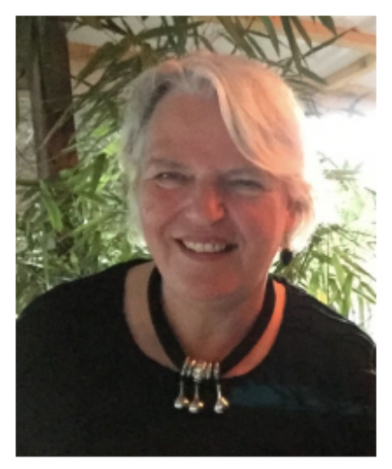Oregon Musician
A journal sharing ideas about music and the teaching of music

The editor
Dr. Diane Baxter, pianist, educator and consultant: editor of Oregon Musician, an enterprising journal from the vast state of Oregon on the West Coast of America. Diane has been a regular participant in the Advanced Class of the summer school in France since 2010, and a wise friend and mentor to innumerable students. Last summer she invited two participants in the Intermediate Class and two faculty members to contribute to the journal on the subject Music and Alchemy. Diane writes in her introduction: 'Music changes things. It’s that simple. HOW it changes things is a different matter entirely.' The resulting articles, approaching the HOW from multiple angles, are not only fascinating in themselves, but also capture the wealth of expertise the summer school offers, the coming together of different people, different abilities, different life experiences.
The contributors
Pianists Janneke Brits and her husband James Kreiling: teachers and performers at the summer school on all four courses. They are superb teachers and rivetting performers, whether in duo or as soloists, and they have recently been appointed associate artistic directors of the En blanc et noir piano festival at Lagrasse near Carcassonne (see also our blog piece Robert Turnbull). Janneke's article is on her experience learning and performing Bach's Goldberg variations (as is another fine article in the journal by Oregon pianist Jill Timmons). Janneke writes:
When I decided to learn the Goldberg Variations, I was lucky enough to study with pianist Charles Owen,* who is one of today’s finest Bach players in the UK. I often think back to the series of lessons I had with him on that piece and how masterfully he led me through the learning process from start to finish and helped me to ‘see through the map’.** Crucially, he knew how to give me the space to find my way to that mysterious moment when a piece becomes a whole, no matter how long it took.
James Kreiling, an authority on Scriabin, writes about the synthesis (and alchemic transformations) of various art forms. He writes: 'Whilst my obsessions with Scriabin’s music mean that I cannot write any article without finding a way to mention him, his precepts regarding the role of art are certainly relevant here. Scriabin believed fervently that the future lay in a synthesis of the arts.'
For the unique Kreiling synthesis see also Multiphonic Arts, the cross-arts performances he organises in Peckham, south London, with a host of multi-talented young musicians, actors and dancers.
* Charles Owen teaches and performs at Chateau d'Aix 2020 on the first course, 19-26 July
** 'So many decisions have to be made, using the printed page as a map…A good performance should make us feel that the player has seen through the map to the countryside, and can share the vision with us.' Susan Tomes

The intermediates
Dr. Linda Patterson, OBE, FRCP: a participant in the Intermediate Class of the summer school since its earliest days in the 1990s. Our first venue was in a fairy-tale chateau known as Ladevie. It only had one bathroom. Undeterred, our much-honoured doctor returned year after year and has not missed a single course. On the highest rung of the medical ladder, Linda is the first to say she is on the middle rungs of music (but climbing). Her piece for Oregon Musician - What Music Means to Me - is a heartfelt account of her journey with piano, and a characteristically generous tribute to our summer school. 'Music brings us into the shared human condition,' Linda writes. And she quotes a well-known philosopher: 'Without music, life would be a mistake.'
Thank you Linda for your insights (and for Nietzche's), for your warm words and for your tireless support of our students.

Stephanie Mizzi: another long-time participant of the Intermediate Class. She is an accountant, has a degree in law and philosophy, and a passion for opera. In the way we all know, but cannot precisely define, she brings these interests together in her pursuit of piano playing. Her article perceptively defines various kinds of transformation, musical, psychological and social, and she writes with humour about the nature of opera:
The world of opera is littered with stories of magical transformations from Cavalli’s La Calisto to Turnage’s Coraline. Potions are also very popular: from the fateful love draft in Tristan und Isolde to countless poisonings (the advantage of this means of dispatch is that it allows the victim, such as Simon Boccanegra, lots of time to die slowly while continuing to sing).